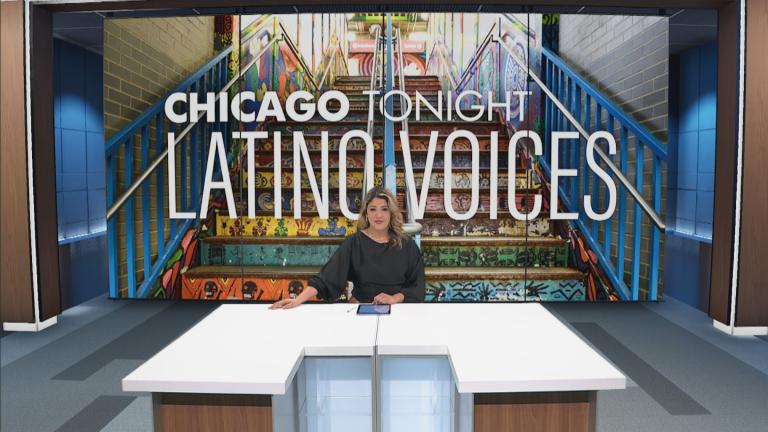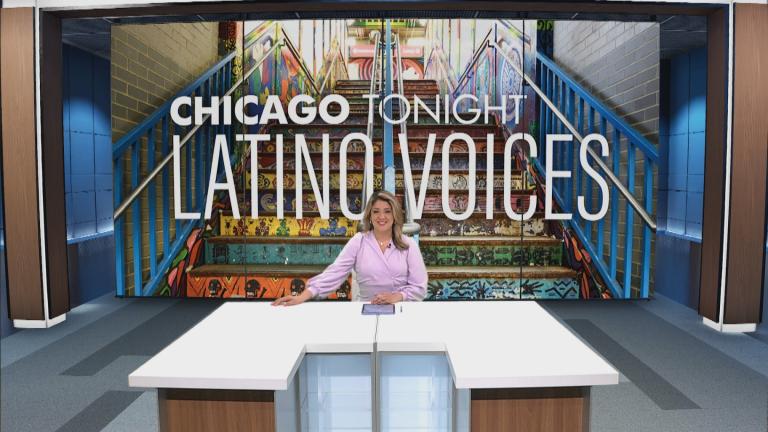Chicago's history as a self-proclaimed sanctuary city dates back to 1985, when then Mayor Harold Washington issued an executive order prohibiting city employees from enforcing federal immigration laws. But since that time, the term sanctuary city — and more recently, welcoming city — has evolved beyond law enforcement implications. As an increasing number of migrants and asylum seekers are making their homes in Chicago, the city's government and community organizations are grappling with what being a welcoming city means for all of its residents.
Nubia Willman, Chicago’s chief engagement officer, said that while there is a welcoming city ordinance that outlines some metrics, the shift to using the word “welcoming” is meant to signal a broader philosophy.
“Under Mayor Lightfoot’s administration, we've really focused on using the word ‘welcoming,’ and that's on purpose,” Willman said. “Often when we think about sanctuary, it's very much about protecting against the federal government, against ICE and whatever iteration of that is in the years past. ‘Welcoming’ is much more holistically facing. It's really about embracing people, making them feel welcome. And so when we do that here in the city, it's not just about protection from ICE or the federal government, it's also about integration. It's also about celebration.”
Ana Solano, a community intake specialist with Erie House, has been among the many people working to provide services to newly arrived immigrant families. She said in her observation, Chicagoans have embraced the idea of being a welcoming city and are eager to extend support to migrants and refugees who have landed here.
“[When] the first busses came, we received a bunch of support from different groups, all walks of life,” Solano said. “Our phone line at Erie was busy with neighbors that really just wanted to help.”
Chicago’s Catholic institutions have a long history of providing support to immigrants and refugees. The Rev. Larry Dowling, pastor of St. Agatha Catholic Church, said doing so is in alignment with the Catholic faith.
“It's part of the mission of the church, in general, is to welcome everyone,” Dowling said. “ … The church has always welcomed those groups and in many cases, founded parishes around those particular ethnic groups. Most recently, the influx of the men, women and children seeking asylum, the church is stepping up to respond, to support these individuals, these families who are who are trying to reestablish themselves … . And really the essence of our faith is to care for those who are struggling, and by doing so, to share our gifts with them. That empowers us, as well.”
A stumbling block reported by many newly arrived immigrants has been the ability to obtain legal work authorization. Willman said the city is doing all it can to facilitate, but ultimately, it’s the federal government that holds that power.
“The federal government is in charge of providing work authorization to people,” Willman said. “And so someone can only work if they have a valid work authorization. Unfortunately, we are not able to provide that. We continue to advocate for expedited work permits, for expanded humanitarian and for other types of federal support so that folks are able to do what they want, which is work. And so we continue to do that. But at the same time, we have to work with the folks on the ground, and we absolutely work with our legal partners here to ensure that they're providing legal orientation and continue the discussion for more robust legal services so that folks can have individual intakes and eventual representation if they are eligible for some immigration remedy.”
Solano said that being unable to work puts immigrants in a bind.
“Unfortunately, the way that the law is written right now,” Solano said, “from my perspective, people are in a “Catch-22” type of situation where to apply for a work permit or asylum, they need to pay these crazy fees — but they're not allowed to work.”
Dowling said the church has also heard from the immigrants it serves that they’re hoping to find work as soon as possible. But until federal authorization is obtained, the church cannot facilitate any illegal work arrangements.
“Telling them where to go to get work is something that we really can't do,” Dowling said. “But many, many of them are actually going out on their own. They want to work, they want to start providing and building a new life for their families. So a lot of that is already happening.”
Dowling said Catholic Charities is working on plans for a new program that partners immigrant families with sponsoring parishioners.
“We’re in the process of instituting a parish sponsorship program — parishes that can sponsor families, provide housing for them in local housing, pay for the housing for basically for an initial six- to nine-month period,” Dowling said. “A case manager is assigned from Catholic Charities and works with the family but also works with the committee within the parish to say, ‘This is what this family needs.’”








